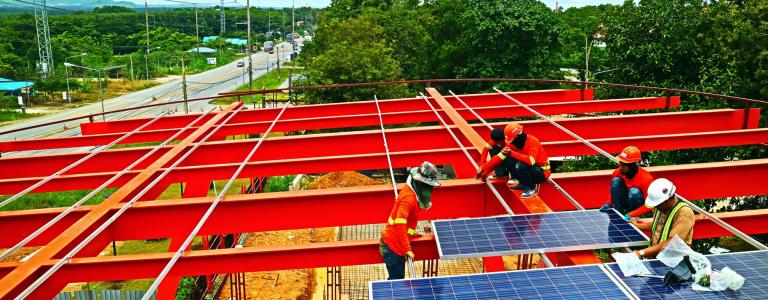Just Transition
Energy transitions are about people: the ones who make the decisions and the ones affected by those decisions. A "just transition" approach ensures that the affected people are considered by those making decisions.
The world has seen many transitions in the past, from automation to the decline or relocation of entire industries, leading to job losses and economic hardship. This has created a fear that future transitions will be similarly painful.
Low-carbon energy transitions are already happening in many countries, often due to economic factors or health concerns, but also supported and accelerated by climate change policies. Nevertheless, the actors involved, including governments, businesses, workers, and communities have a tendency to protect the status quo and keep carbon-intensive industries alive.
Early action on a just transition can minimize the negative impacts and maximize positive opportunities. The Paris Agreement on climate change includes just transition as an important principle. Just transition is not a fixed set of rules, but a vision and a process based on dialogue and an agenda shared by workers, industry, and governments that need to be negotiated and implemented in their geographical, political, cultural, and social contexts. It is implemented with a set of guiding principles, such as the International Labour Organization's guidelines for a just transition.
Articles

What Will Happen at COP 29?
Talks at the 2024 UN Climate Change Conference (COP 29) will range from defining a way forward on finance through a new collective quantified goal (NCQG) to mitigation, and loss and damage. Ahead of negotiations in Baku, IISD’s Earth Negotiations Bulletin Team Lead Jennifer Bansard examines the agenda and breaks down what to watch as eyes turn to Azerbaijan.

How Indonesia's Incoming President Can Advance the Transition to Clean Energy
With Prabowo Subianto inaugurated as Indonesia’s President, speculation abounds about the new administration’s commitment to the clean energy transition and climate targets, given Prabowo’s positioning as the “continuity candidate.” The question is, what, exactly, will be continued?
Senegal’s LNG Drive Is an Economic Gamble
Senegal’s plan to drive economic growth through exports of LNG—largely to Europe—is a gamble, new research warns, as forecasts indicate an imminent decline in international demand for gas.



